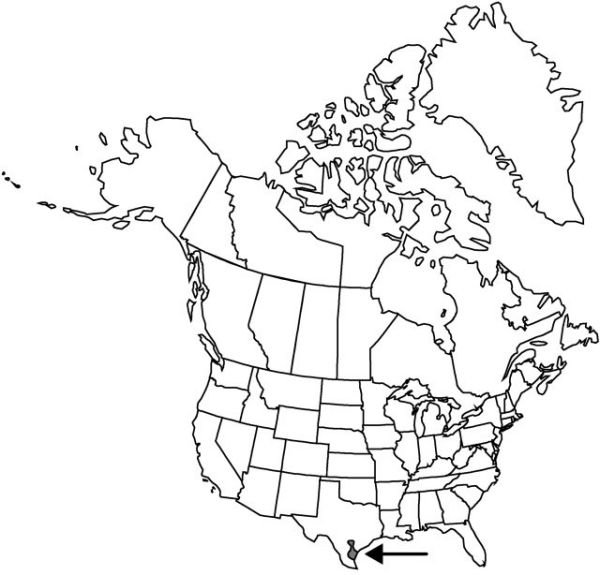Schoenocaulon ghiesbreghtii
Proc. Amer. Acad. Arts 43: 20. 1907.
Bulbs narrowly ovoid to globose, 2.5–6 × 2–5.5 cm diam.; rhizome short, usually appressed to side of bulb. Leaves 6–11, 20–75 cm × 2.8–11 mm, usually shorter than or equaling raceme. Scape 21–93 cm. Racemes condensed, 45–180-flowered (–300-flowered, if cultivated), 5–23 cm, flowers closely packed along axis. Flowers: tepals linear, ovate, or obovate, 2.3–4.7 mm, slightly fleshy, margins crenulate to minutely denticulate; auricles absent; filaments often distally dilated, 2–2.5 times tepal length. Capsules 2–3-locular, ellipsoid to plumply ovoid, 8.5–13.5 × 4–7 mm. Seeds 1–4 per locule, 3–5 × 1.5–2 mm. 2n = 16.
Phenology: Flowering late summer–autumn.
Habitat: Locally abundant in sandy to moderately rich soils
Elevation: 0–100 m
Discussion
In the United States, Schoenocaulon ghiesbreghtii grows at or near sea level and almost exclusively on the Reyosa gravel formation of the Texas Gulf prairie. In the late 1930s and early 1940s, it was used in a series of transplantation experiments conducted by the Texas Agricultural Experiment Stations. This has led to some confusion with regard to its natural distribution.
Selected References
None.
